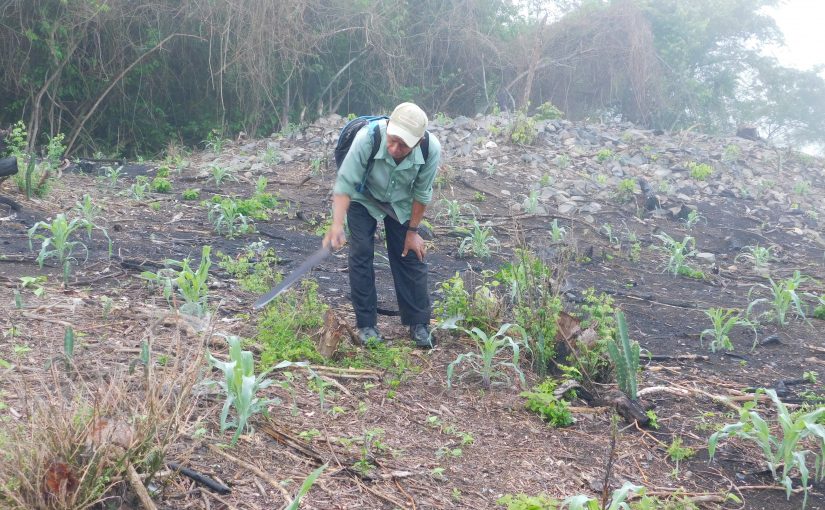In this lesson, we will learn intransitive verbs. Intransitive verbs refer to actions that do not affect an object.
Intransitive verbs in the present tense have three parts: an agent prefix, a verbal base, and a suffix that marks singular or plural agent. In the present tense, the singular is followed by the suffix “ø,” and “h” in the plural.
Tlamānēxtilli ahāhuiltiliztli tlen tlachīhualiztli huan cē tlahtolpāmitl (Example with the conjugation of verbs and a sentence)
ni – (verbal base) – ø
ti – (verbal base) – ø
ø – (verbal base) – ø
ti – (verbal base) – h
in – (verbal base) – h
ø – (verbal base) – h
/ēhua/ “to be from, come from”
Niēhua Mexco. “I am from Mexico.”
/tequiti/ “to work”
Nitequiti caltlamachtiloyan. “I work at school.”
/momachtia/ “to study”
Nimomachtia nāhuatl. “I study Nahuatl.”
/tici/ “to grind”
ticih “they grind (corn)”
Nitici huanya nonanan. “I grind (corn) with with my mother.”
/tlamachtia/ “to teach”
Nitlamachtia nāhuatl īcā yāhuatzinco. “I teach Nahuatl in the morning.”
Conjugate the follow verbs with all the prefixes of the subject and the suffixes in singular and plural. For example:
/chōca/ “to cry”
nichōca “I cry”
tichōca “you cry”
chōca “she/he cries”
tichōcah “we cry”
inchōcah “you all cry”
chocah “they cry”
/Ahqui/ “to swim”
/Huetzca/ “to laugh”
/Ātli/ “to drink water”
/Cececui/ “to be cold”
Now make small sentences with the following verbs. For example:
/Cōchi/ “to sleep”
Na nicōchi pan mahtlactli huan ōme cāhuitl.”
“I sleep at twelve.”
/Quīza/ “to go out”
/Choloa/ “to escape”
/Māltia/ “to bathe, shower”
/Mihtōtia/ “to dance”

